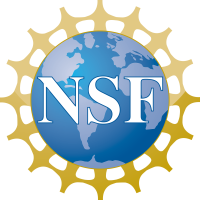You are here
Fiber Development
The North East Cyberinfrastructure Consortium (NECC) is a collaboration of Vermont, New Hampshire, Rhode Island, Maine and Delaware EPSCoR and IDeA INBRE programs. NECC has pieced together the funding for a fiber ring, upgrade of fiber in Rhode Island and Delaware, electronics in Maine, two genomics research projects that require large bandwidth, and workforce development and diversity programs for high school and undergraduate students.
Vermont EPSCoR and the Vermont Genetics Network have combined NSF EPSCoR and NIH IDeA funds to support the fiber from Burlington to Albany and Burlington to Hanover. These two fiber legs are critical to the fiber ring in the North East because they will allow researchers in Vermont to reach Boston via New Hampshire and Maine, and also via Albany. The University of Vermont will have a redundant ring so no single fiber interruption will disrupt service.
With the NSF EPSCoR and NIH IDeA funds to VGN, we have undertaken research that has created two jobs for the Vermont aspects of the NECC work. The use of a Vermont vendor, TelJet Longhaul, is also helping the economy of Vermont.
The vendor will be able to provide us with 20 years of use of fiber for 60 Gbps through Burlington, compared to our current 1.7Gbps. The vendor will take the opportunity to create additional capacity that he can make available to businesses and other customers that need this kind of speed. The BTOP and RUS ARRA projects in the state can link institutions of higher education that need Internet2 to the NECC ring and the other customers to the additional capacity fiber.
UVM will benefit from greatly expanded capacity for internet access (35 times what it has now) to move the large data sets that are needed for modern sequencing, Twitter feed analysis, getting to the TeraGrid for large scale computing, health informatics, and much more. The University has a 20 year Indefeasible Right of Use (IRU) for dedicated use of channels (“waves”) on the fiber at 60 Gbps.
The increased network speed will enable UVM scientists to perform collaborative research with other Universities in the North East. One of the first projects to make use of the new network will be a study led by UVM biology professor Judith Van Houten, who will try to determine the genetic triggers that make some algae blooms toxic while others remain benign.



